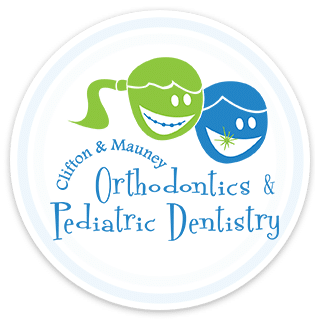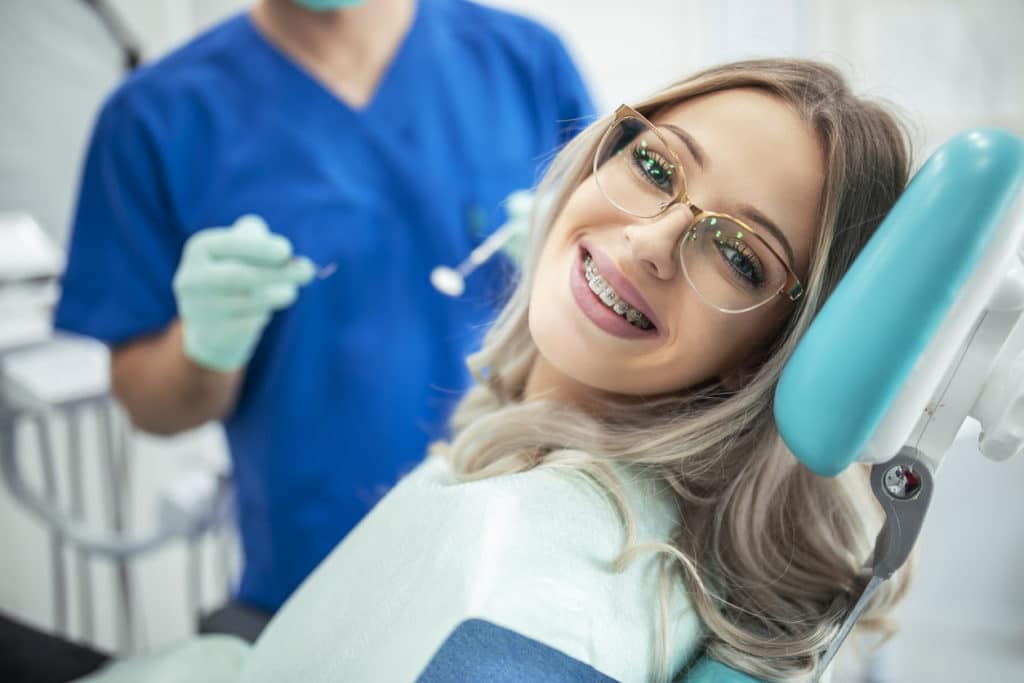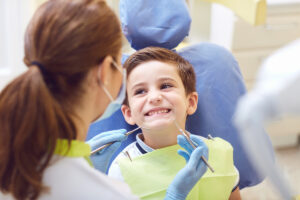
Call Us
An orthodontist is a type of dentist who has received additional, specialized training in the diagnosis and treatment of misaligned teeth, bite issues, and jaw irregularities.
But a fantastic orthodontist does so much more than just that!
A truly fantastic orthodontist is a dedicated partner who goes above and beyond for you.
Dr. Clifton has transformed the smiles of countless people in the Chapel Hill Area, and is board-certified by both the American Academy of Pediatric Dentistry and the American Academy of Orthodontics (AAO).
Learn more about what orthodontists do and how Dr. Clifton and her terrific team provide five-star experiences for kids, teens, and adults.
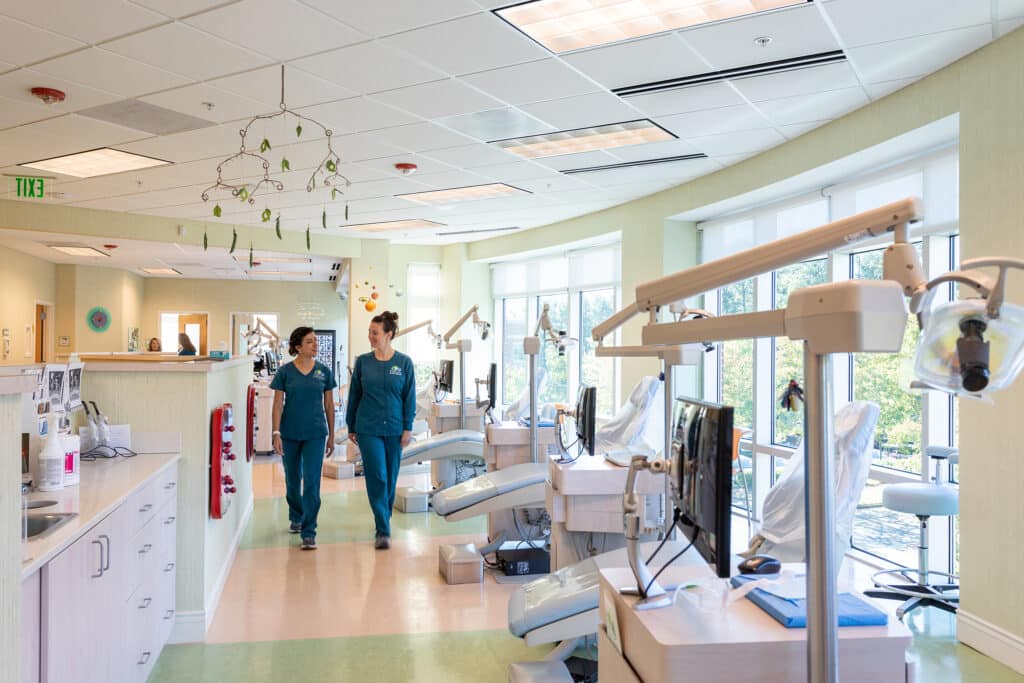
What Do Orthodontists Treat?
Orthodontists specialize in diagnosing, treating, and preventing various conditions related to the misalignment of the teeth, bite, and jaw.
These issues may include crooked teeth, overbites and underbites, crossbites, spaces between teeth, overcrowding of teeth, temporomandibular disorders (TMD), and other jaw disorders.
What Do Orthodontists Do or Use
Besides Braces?
At Clifton & Mauney, we offer a range of options that allows us to tailor a treatment plan to each patient’s needs, including:
Aligners – These clear, removable trays are smooth to the touch, lay flat on the teeth, and are made from a transparent plastic material that makes them almost impossible to see when they’re worn. They are removable and easy to pop out for eating, drinking, brushing, and flossing. We proudly offer Spark™ Aligners as well as options from Invisalign®.
Early Treatment – Interceptive orthodontic treatment — also known as early treatment or phase 1 orthodontics — is a type of orthodontic treatment that addresses early childhood bite issues and helps guide the development of your child’s teeth and jaw.
Jaw Repositioning Appliances – Jaw repositioning appliances — sometimes called splints — are used to adjust either the upper or the lower jaw so that the whole jaw structure performs more naturally. These appliances can relieve discomfort caused by temporomandibular joint disorder (TMJ) and other temporomandibular disorders.
Orthodontic Emergencies – True dental or orthodontic emergencies happen when you least expect it. Any of the following issues is a serious emergency, and you should seek medical attention immediately if you experience any of them:
- Injury or major trauma to the face, mouth, or the teeth
- A serious infection of the gums, teeth, face, or mouth
- Persistent, severe, and unmanageable pain or discomfort in your mouth or face
Palatal Expander – A palatal expander is used to widen the curve of the upper jaw. It is an appliance that fits on the roof of the mouth and helps to better align the bones and joints in the mouth.
Retainers – Retention is the final stage of orthodontic treatment. During this phase, you’ll wear an orthodontic appliance known as a retainer. By using a retainer, you can keep your teeth from moving and maintain your new, beautiful smile. At Clifton & Mauney, we offer three different types of retainers, each being effective for certain types of orthodontic situations.
Space Maintainers – Dental space maintainers are devices used to leave enough space open for permanent teeth to grow in after baby teeth are lost prematurely.
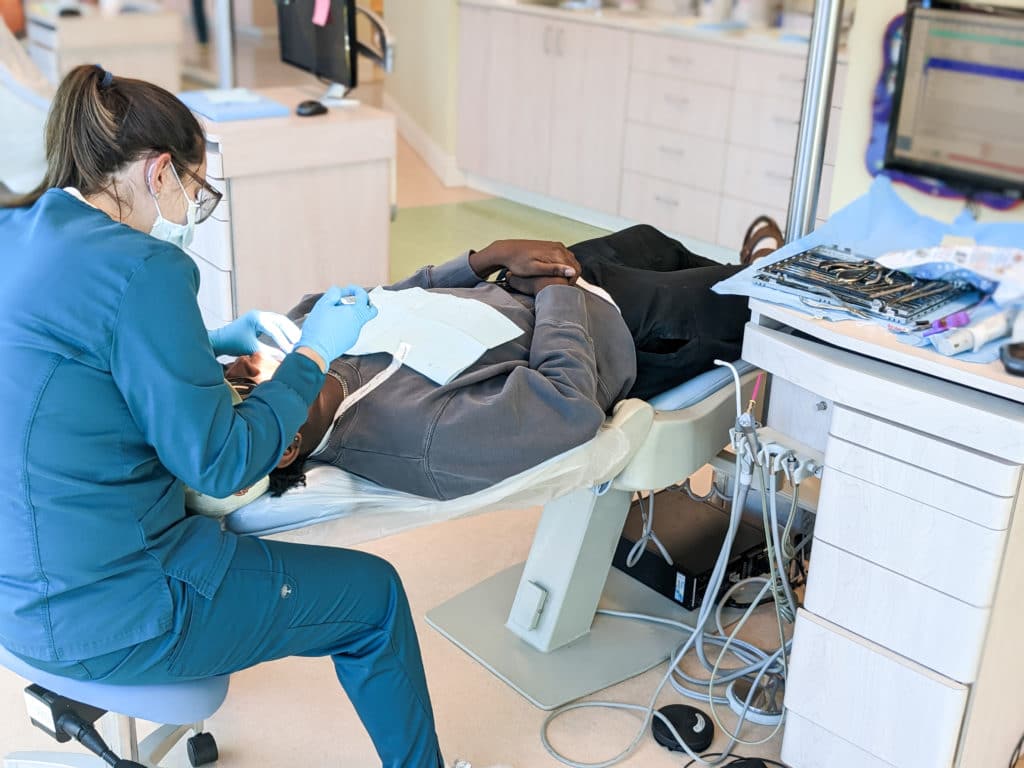
At What Age Should I See An Orthodontist?
If you are considering orthodontic treatment for your child, the AAO recommends a child’s first visit to an orthodontist occur by age 7. By seeing an orthodontist before all adult teeth have emerged, the orthodontist can create a comprehensive treatment plan to reduce alignment problems that occur once adult teeth emerge.
According to the AAO, 1 in 4 orthodontic patients is an adult, and orthodontic treatment for adults can be just as effective as it is with children and adolescents.
Untreated orthodontic problems can lead to poor dental health and a wide range of overall health issues, including:
- Pneumonia or other respiratory diseases
- Heart disease
- Stroke
- Temporomandibular joint disorder (TMD)
- Chronic pain in the neck, shoulders, back
- Headaches
- Hearing loss
Not only can an attractive smile inspire confidence, but it can put your family on the path to a lifetime of healthy smiles.
Have More Questions About
What Orthodontists Do For You? Contact Us
Dr. Clifton, has specialized training in the diagnosis and treatment of issues affecting the alignment of the teeth and jaws. Our practice offers a full line of orthodontic treatments, including Invisalign and Invisalign Teen.
We are dedicated to ensuring that every patient who visits our Chapel Hill office has a positive experience. Call us at (919) 933-1007 or request an appointment online today to discuss your treatment options!
-
77 Vilcom Center Dr., Suite 310
Chapel Hill, NC 27514 - 919-933-1007
- info@cliftonandmauney.com
Hours
-
8:00 am - 5:00 pm
Mon-Thurs
